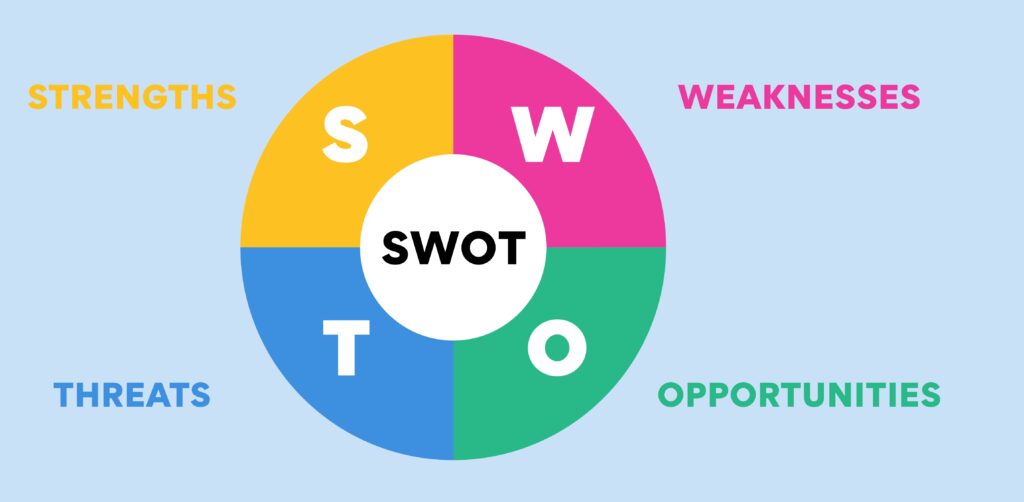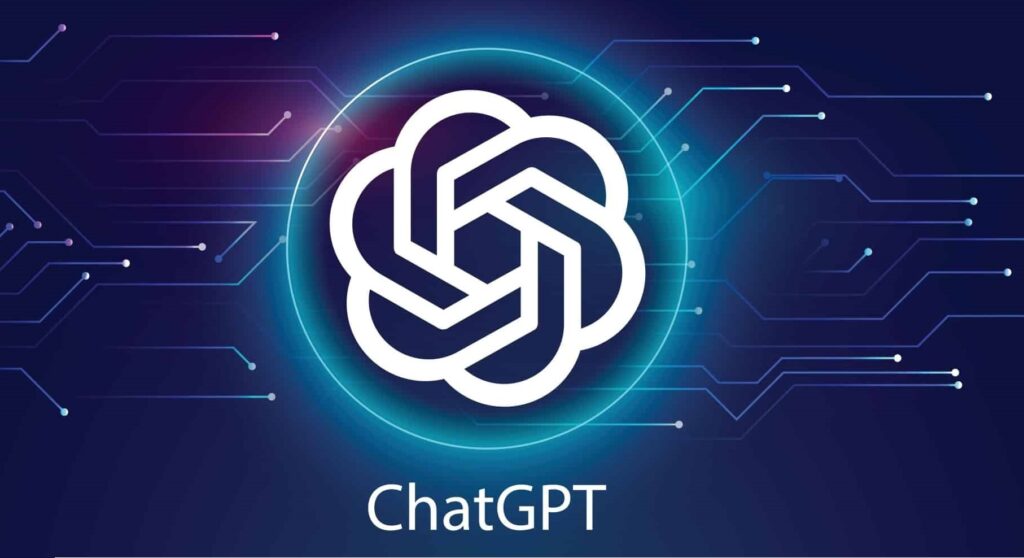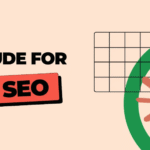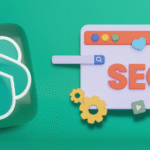Introduction
In today’s fast-paced business landscape, market research and competitive analysis are more critical than ever. Traditionally, these tasks required extensive time, financial investment, and specialized expertise. Now, with the rise of AI tools like ChatGPT, businesses of all sizes can access powerful insights at a fraction of the cost and time. From identifying emerging trends to evaluating competitor strategies, ChatGPT is transforming how professionals approach decision-making and strategy development.
High-value search queries such as “how to use ChatGPT for market research” and “how to use ChatGPT for my business” highlight the growing interest in using AI to support intelligent, data-driven planning. Whether you’re launching a new product, entering a competitive market, or refining your business model, ChatGPT offers the tools to conduct fast, flexible, and scalable research.
This article explores how to use ChatGPT effectively for market research and competitive intelligence—with practical examples, prompt templates, and SEO-rich insights.
Why Use ChatGPT for Market Research?
In the age of digital transformation, market research is no longer confined to manual surveys or costly agency reports. Businesses, startups, and even solo entrepreneurs are increasingly asking: “How can I use ChatGPT for market research?” The answer lies in the platform’s ability to process massive volumes of data, generate actionable insights, and uncover trends—instantly and affordably.
ChatGPT is an AI model that excels in data interpretation, trend summarization, customer persona building, and even SWOT analysis. Unlike traditional tools that rely on static datasets, ChatGPT offers dynamic research capabilities by processing user prompts and generating context-rich responses. Whether you’re exploring new markets, validating product ideas, or identifying competitive threats, ChatGPT can serve as a powerful research assistant.

One of the biggest reasons to leverage ChatGPT is its ability to conduct deep research. With well-crafted prompts, you can ask it to analyze market segments, identify customer pain points, or summarize industry-specific white papers. Keywords like “how to use ChatGPT for deep research” or “how to use ChatGPT for my business” consistently appear in high-value queries, reflecting growing demand for AI-driven market intelligence.
Additionally, ChatGPT can be used to interpret customer reviews, generate survey questions, and even perform competitor comparisons, making it a multipurpose tool in any market analyst’s toolkit. By using keywords such as “how to use ChatGPT for market research” and “can ChatGPT compare two documents”, users tap into its capacity to analyze multiple data sources simultaneously—something traditional researchers take days or even weeks to complete.
In short, ChatGPT democratizes market research by offering fast, cost-effective, and intelligent insights, making it ideal for businesses aiming to stay agile and competitive in a rapidly evolving landscape.
Setting Up ChatGPT for Research
Before diving into market research tasks, it’s essential to properly set up ChatGPT for maximum output quality. Whether you’re using the free version or exploring the advanced capabilities of ChatGPT Plus, knowing how to configure the tool effectively ensures your research process is smooth and insightful.
To begin, create an account on the official ChatGPT platform. For enhanced functionality, many users ask: “How do I sign up for ChatGPT Plus?” or “How to get the paid version of ChatGPT?”—both high CPC search phrases reflecting business users’ intent. ChatGPT Plus provides access to GPT-4, the most advanced model, which delivers more accurate, detailed, and context-aware responses—crucial for market analysis.
Once set up, prompt engineering becomes the next critical step. Crafting specific and clear prompts like “Summarize the market landscape of the health tech industry in North America” or “Compare brand positioning of Nike vs Adidas” leads to deeper, targeted insights. Many users also search “how to use ChatGPT for my business”, indicating the demand for business-oriented prompt frameworks.
For more structured research workflows, users may integrate ChatGPT plugins (available to Pro users) or connect via API for large-scale automation and custom dashboard development. These features are ideal if you need to analyze product reviews, extract competitor information, or summarize user feedback from multiple sources.
Moreover, ChatGPT can work in tandem with tools like Excel. High-interest queries like “can ChatGPT analyze Excel data?” show that users want to input spreadsheets and interpret data points with AI assistance—ideal for tasks like trend spotting or pricing analysis.
By configuring ChatGPT properly and learning to ask the right questions, businesses can unlock a powerful AI research assistant ready to streamline and enhance every stage of the market research journey.
ChatGPT Use Cases in Market Research
Once ChatGPT is properly set up, it becomes a versatile assistant capable of supporting multiple stages of market research. From identifying trends to customer persona development, ChatGPT empowers businesses to act on insights swiftly and intelligently.

📊 a. Industry and Trend Analysis
Businesses frequently ask “how to use ChatGPT for deep research?” to explore industry-wide developments. ChatGPT can be prompted to analyze sector-specific shifts, emerging technologies, or consumer behavior patterns. For example, you can ask, “Summarize the latest trends in the e-commerce apparel sector in the US.” The AI will synthesize insights from its trained data and present a coherent overview, acting as a quick substitute for hours of online reading.
👥 b. Customer Persona Creation
Understanding customer demographics and motivations is essential. ChatGPT can generate detailed buyer personas by processing product reviews, FAQs, and audience descriptions. A prompt like, “Create a customer persona for a millennial who buys eco-friendly tech gadgets,” will return age, occupation, values, purchasing habits, and content preferences—all within seconds.
📈 c. Product & Pricing Insights
Want to know what people love or dislike about a competitor’s product? Ask ChatGPT to analyze reviews or summarize product comparisons. Many users search for “can ChatGPT compare two documents?” or “can ChatGPT analyze text?”—highlighting its use in pricing research and product differentiation.
📋 d. Survey Design and Sentiment Analysis
ChatGPT also assists in drafting targeted survey questions and interpreting results. You can prompt it to “Generate 5 customer satisfaction questions for a new fitness app,” or “Summarize user sentiments from the following feedback list.”
In all these use cases, ChatGPT acts not only as a tool but as a strategic ally, delivering valuable insights quickly and making market research accessible, scalable, and cost-efficient.
Using ChatGPT for Competitive Analysis
Competitive analysis is a vital component of market strategy, and ChatGPT is quickly becoming a go-to tool for businesses aiming to outpace their rivals. With its ability to synthesize large volumes of public data, generate comparisons, and simulate SWOT evaluations, ChatGPT transforms how businesses gather and interpret competitive intelligence.

🕵️ a. Identifying Competitors
A common prompt is: “Who are the top 5 competitors of [Brand/Product] in [Region]?” ChatGPT can instantly generate lists based on market sector, product category, or geography. These AI-generated snapshots are especially helpful for startups and small businesses entering new markets.
⚖️ b. Brand Comparison and Benchmarking
Many users search “can ChatGPT compare two documents?” or “how can I use ChatGPT for my business?”—a testament to its usefulness in direct brand comparisons. By inputting product descriptions, customer reviews, or marketing language, ChatGPT can deliver side-by-side comparisons highlighting unique selling points, pricing strategies, and customer sentiment.
📉 c. SWOT Analysis and Strategic Insights
You can prompt ChatGPT to produce SWOT (Strengths, Weaknesses, Opportunities, and Threats) analyses for both your business and competitors. For example: “Give me a SWOT analysis of Starbucks vs Dunkin’ in the U.S. coffee market.” The AI will outline insights from existing knowledge, providing a foundation for strategic planning.
💬 d. Marketing and Positioning Review
ChatGPT can evaluate a competitor’s website content, ad copy, and customer messaging to assess positioning strategy. A prompt like “Analyze the brand tone and marketing focus of Brand X” can reveal key tactics, differentiators, and target personas.
With keywords like “how to use ChatGPT for market research” and “ChatGPT for business intelligence” gaining popularity, it’s clear that competitive analysis with AI is no longer optional—it’s a strategic necessity in today’s digital economy.
Limitations and Cautions
While ChatGPT is a powerful ally in market research and competitive analysis, it’s important to understand its limitations to avoid misinformed decisions or misuse. One of the most searched queries in this area is “does ChatGPT plagiarize?” or “is ChatGPT legal for business use?”—highlighting growing concerns around accuracy, originality, and compliance.
📅 a. Outdated or Generalized Information
ChatGPT’s responses are based on patterns learned from pre-existing data. Unless integrated with plugins or live browsing (only available in premium versions), it may not have real-time knowledge of recent events, pricing, or competitor updates. For instance, if you’re analyzing a dynamic market like crypto or AI tools, results may be outdated.
🧠 b. Lack of Source Attribution
While ChatGPT can summarize trends and generate ideas, it doesn’t cite sources unless explicitly prompted. This poses a risk for decision-makers who rely solely on its insights without cross-verifying with up-to-date reports, databases, or scholarly research.
⚖ c. Ethical and Legal Boundaries
Many businesses ask “Is it legal to use ChatGPT-generated content?” The short answer: yes, but with care. AI-generated content should be vetted for originality and factual accuracy. Misuse—such as copying competitor text or relying on AI for legal or financial advice—can result in ethical and legal complications.
✅ Best Practice
Always validate ChatGPT’s output with human expertise and credible sources. Treat it as a decision-support tool, not a final authority.
By understanding these limitations, businesses can use ChatGPT more responsibly—maximizing its benefits while minimizing potential risks.
Real-World Examples and Prompt Templates
One of the best ways to unlock the full potential of ChatGPT for market research and competitive analysis is by learning from real-world use cases and using prompt templates tailored to business needs. With keywords like “how to use ChatGPT for my business” and “ChatGPT for competitive strategy” trending with high CPC, it’s clear that professionals are actively seeking practical applications.
🧪 Example 1: Startup Launch Research
A health tech startup planning to launch a fitness app used ChatGPT to identify trends in wearable tech, key competitors, and ideal customer personas. Prompts like “What are the current trends in wearable fitness tech?” and “Create a persona for a Gen Z fitness app user” helped them design features aligned with market demand.
🧪 Example 2: E-Commerce Competitive Audit
An e-commerce brand specializing in eco-friendly home goods used ChatGPT to evaluate their competitors’ pricing models and customer sentiment. By inputting review summaries and product descriptions into the prompt “Compare the customer value proposition of Brand A vs Brand B,” the business generated a detailed SWOT comparison to inform pricing and ad messaging.
💡 Useful Prompt Templates
To streamline your own research, try the following ready-to-use prompts:
- “Summarize the competitive landscape of the [industry] in [region].”
- “List top 5 market trends in [niche] for [year].”
- “Create a buyer persona for a [demographic] interested in [product/service].”
- “Compare Brand A and Brand B based on features, pricing, and customer reviews.”
- “Generate a SWOT analysis for [competitor].”
These templates not only simplify complex queries but also deliver rapid, actionable insights—making ChatGPT a practical research companion for entrepreneurs, marketers, and strategists alike.
Conclusion
ChatGPT is revolutionizing the way businesses conduct market research and competitive analysis. Its ability to generate insights, summarize data, create customer personas, and benchmark competitors makes it an invaluable tool for modern strategists. With high-interest queries like “how to use ChatGPT for my business” and “can ChatGPT compare two documents,” it’s clear that professionals are turning to AI for smarter decision-making.
However, while ChatGPT accelerates research, it must be used responsibly—validated by human expertise and supported by current data. When integrated into a broader research strategy, ChatGPT offers speed, scalability, and precision that traditional methods often lack. In short, if you’re looking to gain a competitive edge, reduce research costs, and streamline your strategic planning, leveraging ChatGPT is not just an option—it’s a competitive necessity in today’s AI-driven marketplace.



